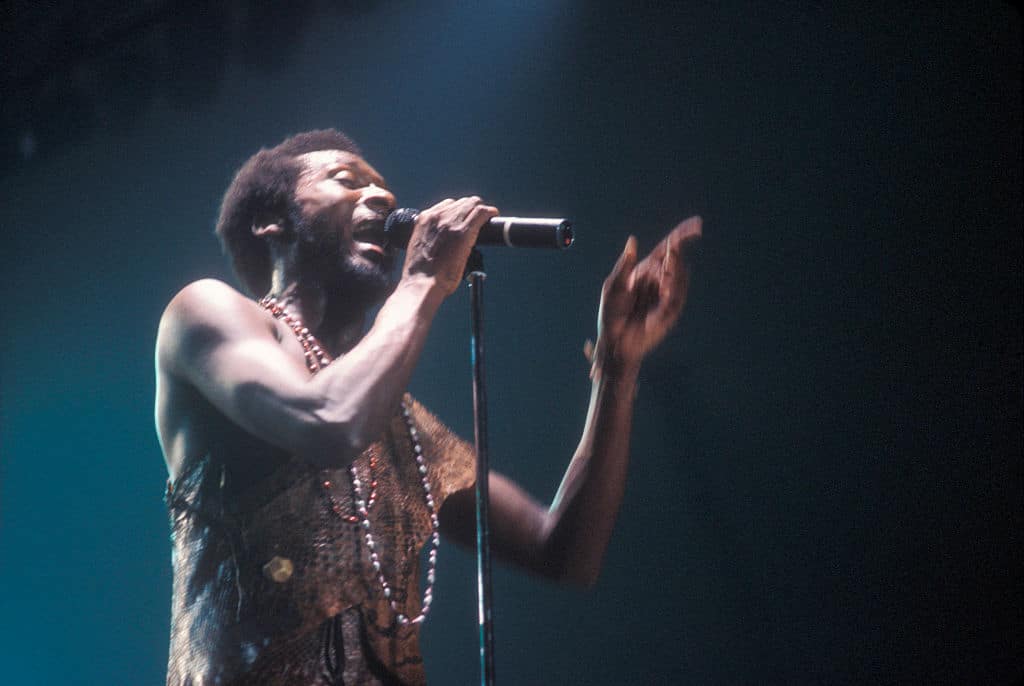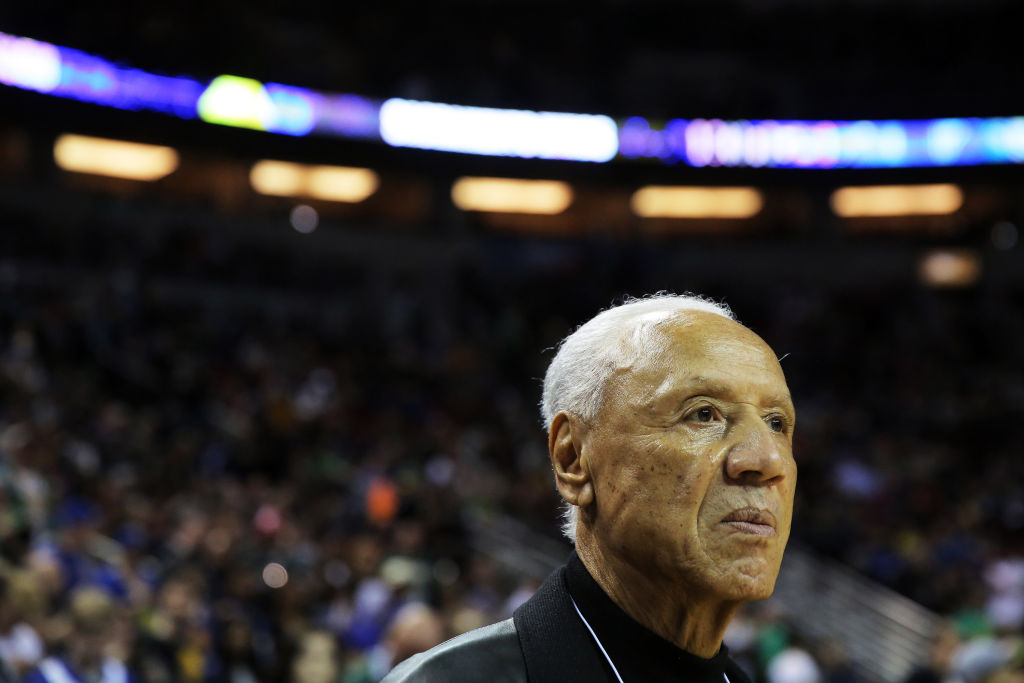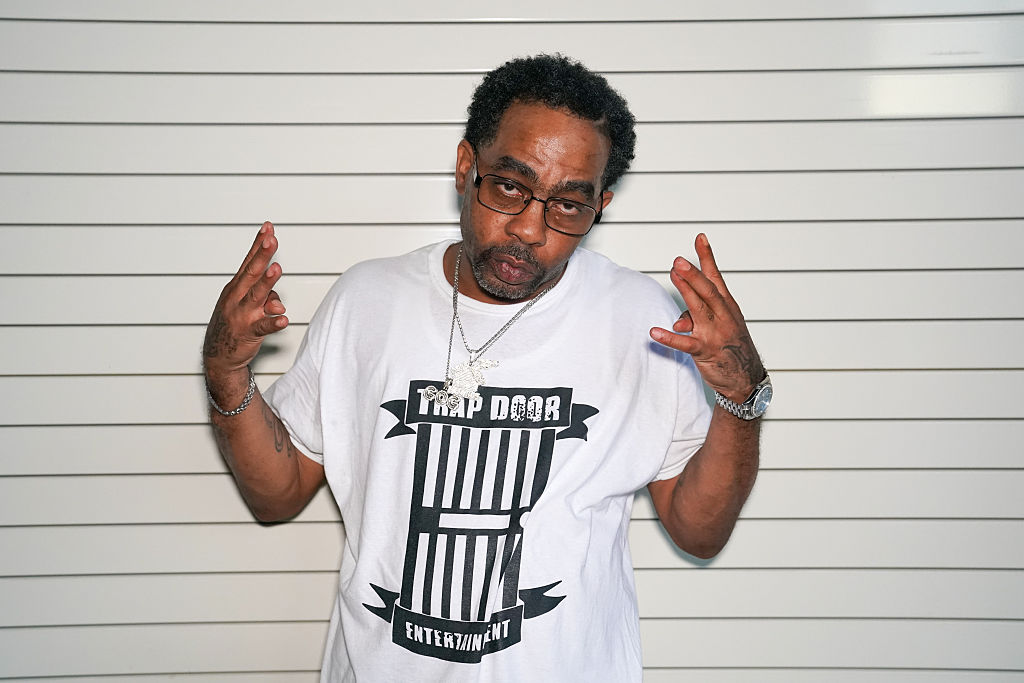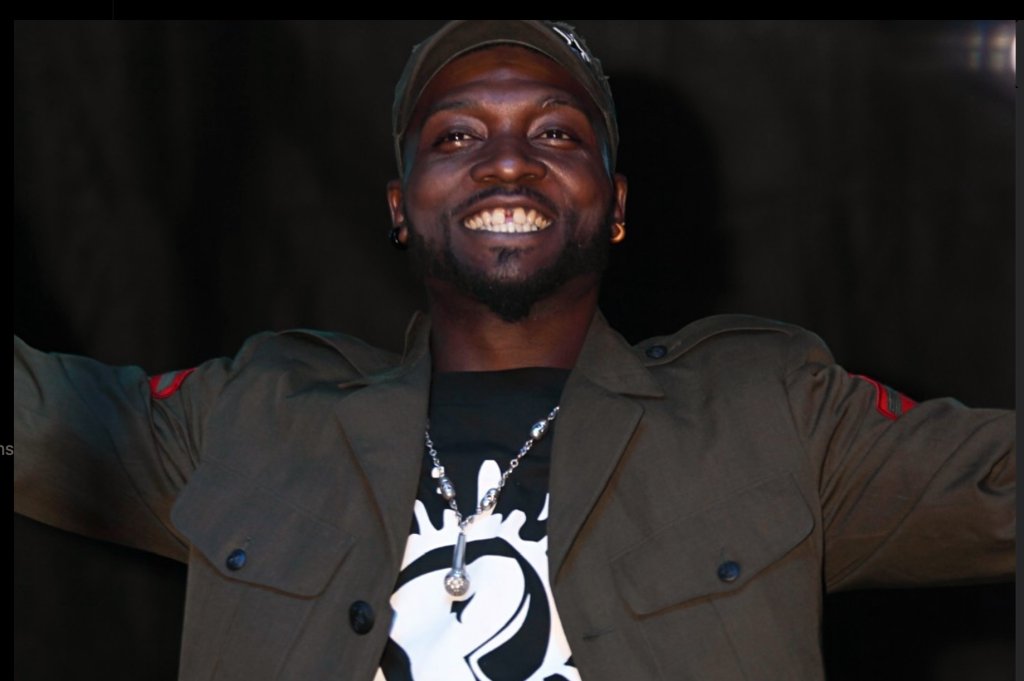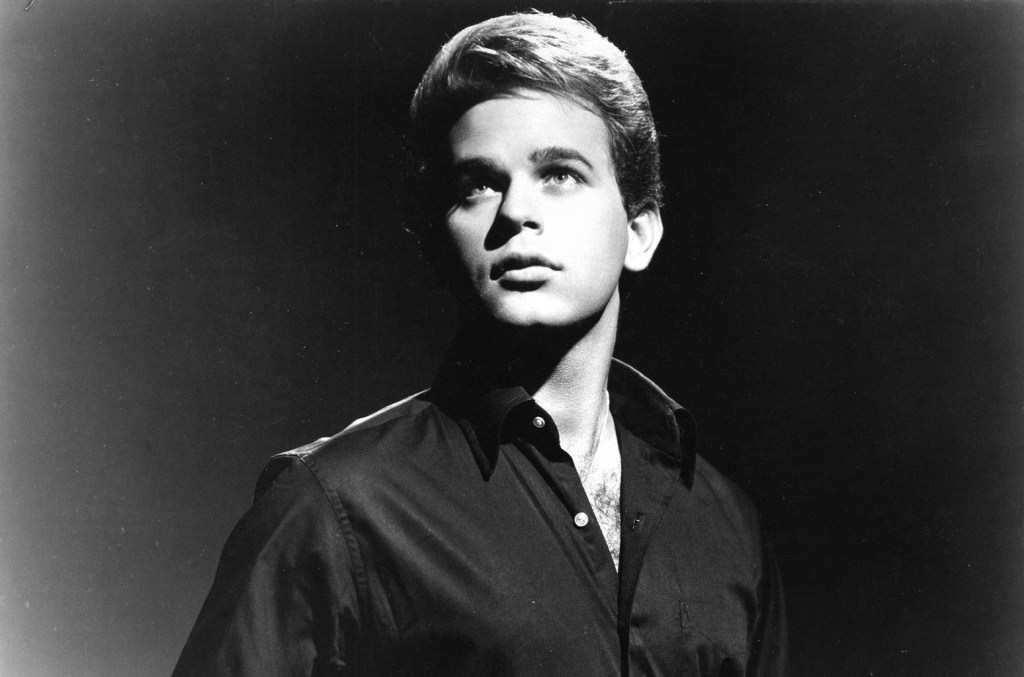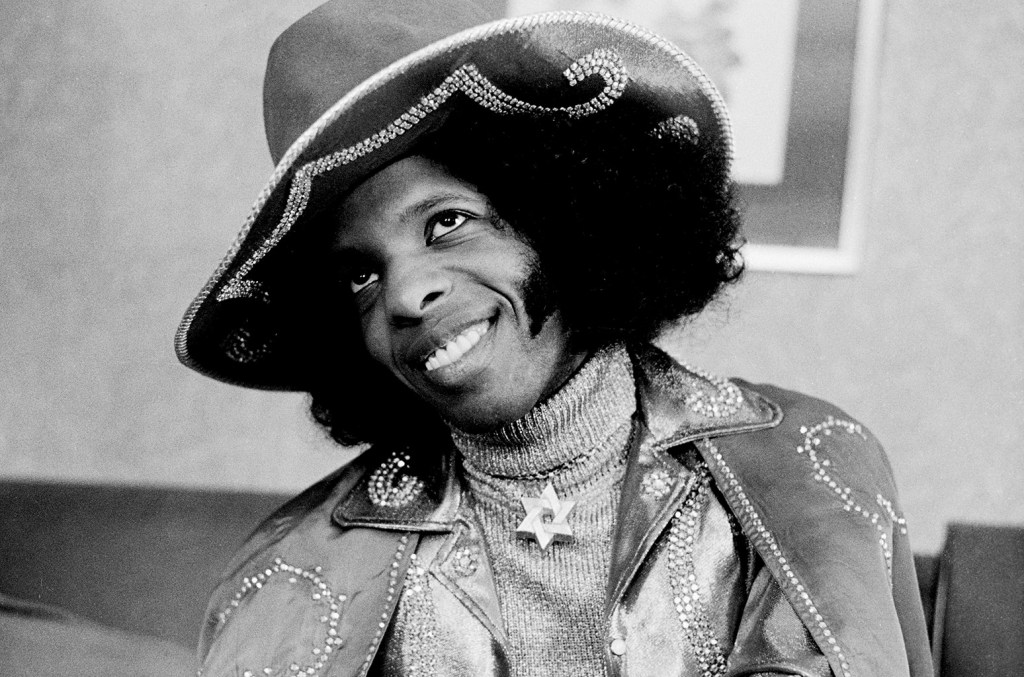obit
Trending on Billboard
Bob “Bongo” Starkie, guitarist for the trailblazing Australian rock band Skyhooks, has died at 73 after a year-long battle with acute myeloid leukemia. His death was confirmed Tuesday on the group’s official Facebook page.
Explore
See latest videos, charts and news
Skyhooks archivist Peter Green announced the news, writing that Starkie “passed away early this morning” after spending the past year undergoing treatment while still hoping to return to the stage. Green remembered him as the youngest member of the band who “embraced the theatrics” that became a signature part of Skyhooks’ identity — from bold makeup and elaborate stage outfits to the irreverent swagger that helped define the group’s rise. “The music always came first,” Green wrote, adding that performing live “was his absolute joy” and that “music was in his blood till the very end.”
Starkie joined Skyhooks in August 1973, replacing his older brother Peter Starkie, who died in 2020 at age 72 following complications from a fall. Peter was one of the musicians who helped establish the early lineup that would go on to dominate Australian rock in the mid-1970s.
In a tribute shared through the band’s page, Starkie’s daughter Indiana said her father “peacefully departed, listening to Chuck Berry, snuggling with his fur baby Bonnie, surrounded by friends and family.” She noted that he was deeply loved by daughters Indiana and Arabella, grandchildren Phoenix and Lucia, partner Chrissy, close friend Ian, and son-in-laws Simon and Chris, adding: “He felt the love till the very end.”
Formed in Melbourne in 1973, Skyhooks quickly became one of Australia’s most influential rock acts. Known for their glam-leaning visual style, provocative lyrics and theatrical shows, the band gave Michael Gudinski’s Mushroom Records its first major commercial breakthrough. Their debut album, Living in the 70’s, spent 16 weeks at No. 1 in 1975 and reshaped Australia’s pop and rock landscape. Skyhooks also made broadcasting history when their track “You Just Like Me ’Cos I’m Good in Bed” became the first song ever played on 2JJ (later triple j) in January 1975.
The group endured tragedy before: frontman Graeme “Shirley” Strachan died on August 29, 2001, at age 49 in a solo helicopter crash near Mount Archer in Queensland. He was piloting a Bell 47 when turbulence caused the rotor to strike the tail boom, leading to the fatal accident.
Skyhooks disbanded in 1980 but reunited periodically, with Starkie remaining one of the band’s most active ambassadors. In 1992, Skyhooks were inducted into the ARIA Hall of Fame, further defining their status as one of Australia’s defining rock acts.
Jimmy Cliff, a popular reggae singer who helped bring the genre to the global masses, has died, according to a social media post from a loved one. Jimmy Cliff’s wife shared the news of her husband’s passing in the wee morning hours on Monday (November 24).
Jimmy Cliff’s wife shared news of the passing on Cliff’s official Instagram page, penning a heartfelt note to his fans and praising the doctors who treated her husband in his last days.
From IG:
It’s with profound sadness that I share that my husband, Jimmy Cliff, has crossed over due to a seizure followed by pneumonia. I am thankful for his family, friends, fellow artists and coworkers who have shared his journey with him. To all his fans around the world, please know that your support was his strength throughout his whole career. He really appreciated each and every fan for their love. I also wanted to thank Dr. Couceyro and the whole medical staff, as they have been extremely supportive and helpful during this difficult process. Jimmy, my darling, may you rest in peace. I will follow your wishes. I hope you all can respect our privacy during these hard times. Further information will be provided at a later date. See you and we see you Legend. Latifa , Lilty and Aken
Love Hip-Hop Wired? Get more! Join the Hip-Hop Wired Newsletter
We care about your data. See our privacy policy.
Born James Chambers on July 30, 1944, Cliff’s journey into music began when he would listen to local sound systems as a young student. At the age of 14, Cliff’s father took him to Kingston, which is where he adopted his stage name.
After urging Chinese-Jamaican Leslie Kong to back his music career, Cliff began recording records and notched several local hits for Kong’s label. Cliff remained with Kong’s label until 1971 and even served as an A&R, bringing a young Bob Marley into the fold and helping him cut his first records.
Cliff would move on to sign with Island Records, and while the union was rocky at the start, Cliff became a vanguard of the early reggae sound as it shifted from its precursor, ska, and albums such as 1967’s Hard Road to Travel were not only responsible for Cliff’s growing fame but also the prominence of reggae.
In 1972, Cliff starred in the film The Harder They Come as Ivanhoe “Ivan” Martin, a singer hoping to make it in the music business in Kingston, but turns to crime when his career fails to pan out. The film is considered one of the most important pieces of art to emerge from Jamaica and turned all eyes towards the reggae sound.
Cliff would win two Grammy Awards in his career. He notched the Best Reggae Recording award in 1986 for Cliff Hanger and won Best Reggae Album in 2013 for Rebirth. Cliff’s final released album was 2022’s Refugees. Before he passed, Cliff was the only living reggae artist to receive Jamaica’s highest honor, the Order of Merit.
Jimmy Cliff is survived by his wife Latifa Chambers, daughter Lilty Cliff, and son Aken Cliff. He was 81.
—
Photo: Getty
Lenny Wilkens, a basketball legend who amassed a decorated playing career ahead of his shift into coaching, has died, according to reports. Known as a savvy playmaker and one of many player-coach hybrids, Lenny Wilkens’ contributions to the sport were recognized by the NBA in both fields.
ESPN reports that Lenny Wilkens, a native of Brooklyn, N.Y., didn’t play basketball until his senior year of high school. While Wilkens was not described as a superhuman physical specimen, his knowledge and feel for the game as a playmaker catapulted him in the eyes of sports media and observers to the tune of nine NBA All-Star player selections.
Wilkens attended college at Providence College, leading the school to the NIT finals in 1960. He was drafted sixth overall in the 1960 NBA Draft by the St. Louis Hawks, spending eight seasons there before heading to the Seattle Supersonics, leading the league in assists during the 1969-70 campaign.
Love Hip-Hop Wired? Get more! Join the Hip-Hop Wired Newsletter
We care about your data. See our privacy policy.
From 1969 to 1972, Wilkens was a player-coach for the Supersonics, and did the same for the Portland Trailblazers before becoming a full-time head coach for one season. Wikens returned to Seattle to coach his former team for eight seasons, winning the NBA championship in 1978.
NBA Commissioner Adam Silver shared a statment in honor of Wilkens.
“Lenny Wilkens represented the very best of the NBA — as a Hall of Fame player, Hall of Fame coach, and one of the game’s most respected ambassadors,” said Silver in the statement. “So much so that, four years ago, Lenny received the unique distinction of being named one of the league’s 75 greatest players and 15 greatest coaches of all time.”
Wilkens was first inducted into the Basketball Hall of Fame as a player in 1989, 1998 as a coach, and 2010 as a member of the “Dream Team.”
Lenny Wilkens passed away at his home in Medina, Wash. He is survived by his wife, Marilyn Reed, their three children, Leesha, Randy, and Jamee, and a host of grandchildren.
—
Photo: Getty
Young Bleed, once a member of Master P’s No Limit Records collective, has died after suffering a medical event last week. There were premature reports of Young Bleed’s passing, but his son and recording artist Ty’Gee Ramon shared a post on social media confirming the loss of the Baton Rouge rapper.
Ty’Gee Ramon, who is Young Bleed’s eldest child, took to his Instagram page to not only honor his father movingly but also to clear up all the chatter surrounding his passing. According to Ramon, his father did suffer from high blood pressure but was not dealing with any notable health issues.
Throughout the video, Ramon showed impeccable poise in talking about his father. Ramon revealed that his father suffered a brain aneurysm after attending an afterparty connected to the recent Cash Money Records and No Limit Records VERZUZ celebration. Ramon also thanked all of those who had positive thoughts for the family and were rooting for a recovery.
Ramon, like his father, is a rapper signed to Bleed’s Trap Door Entertainment label.
Young Bleed started his career in the late 1990s and was eventually signed to Priority Records with the help of Master P’s No Limit Records machine. His debut album, My Balls and My Word, was released in 1998 and eventually went gold. Bleed’s last album, Signs N’ Wonders, was released on his Trap Door Entertainment imprint in 2020.
To the family, friends, and fans of Young Bleed, Hip-Hop Wired sends our deepest condolences.
—
Photo: Getty
Posta Boy, a Harlem rapper known for his battling prowess who cut his teeth on BET’s 106 & Park‘s “Freestyle Friday” series, has reportedly died. Posta Boy dominated the “Freestyle Friday” event for seven weeks straight and was the first inductee for the brand’s hall of fame.
It appears that one of the first people to break the news was rapper and educator Mickey Factz, who took to social media to offer his condolences. Soon after, word began to spread with other rappers such as Skyzoo mentioning that Posta Boy was an inspiration to him as a younger artist.
“Damn, RIP Posta Boy. As a 106 & Park alumni, the run Posta started made that audition line wrap around the corner twice after he retired 7 straight. We all wanted in. Much love to his legacy and strength to his family indeed,” said Skyzoo on Monday (October 27).
Others, such as fellow Harlem artist UFO Fev, Spanish Ran, and boxer Floyd Mayweather, who signed Posta Boy to his music label, all gave tributes.
According to still developing reports, it appears that the rapper born Sherard Dixon passed from an ongoing bout with cancer. He was 43.
—
Photo: Getty
Hip-Hop fans are gathered in mourning the loss of a pioneering rapper from Los Angeles’ sprawling underground Hip-Hop scene. P.E.A.C.E., a member of Freestyle Fellowship, passed away over the weekend, and social media has been flooded with moving tributes.
Details are scant regarding the passing of P.E.A.C.E., but the official Instagram account for Freestyle Fellowship shouted out the rapper in a post sharing condolences.
“Rest well brother P.E.A.C.E [flying angels emojis]. You had a great heart and you were authentic. One of West coast Hiphop royal treasures. You will be surely missed my friend,” read the caption of the post with a photo of the rapper.
Love Celebrity News? Get more! Join the Hip-Hop Wired Newsletter
We care about your data. See our privacy policy.
Lou Christie, one of the most beloved teen idols of the 1960s and the voice and songwriter behind Billboard Hot 100-topper “Lightnin’ Strikes,” has died. He was 82 years old. The musician died on Wednesday (June 18) at home in Pittsburgh after fighting a long illness, his wife, Francesca, told The Hollywood Reporter. Born Lugee […]
Rodney Brown, drummer on 1967’s “Funky Broadway,” a Dyke & the Blazers classic and one of the first hit songs to use a variation on the word “funk” in its title, died May 17 of unknown causes in an unknown location. The lifelong Phoenix resident, who’d been the last surviving member of the band’s original lineup, was 78.
Explore
Explore
See latest videos, charts and news
See latest videos, charts and news
Brown’s distinctive skipped-beat syncopation on “Funky Broadway,” a track covered by many artists, most notably Wilson Pickett with a Billboard Hot 100 No. 8 hit later that year, turned out to be influential. Clyde Stubblefield employed a similar technique on James Brown’s “Funky Drummer,” released in 1970, which became a widely sampled breakbeat on numerous hip-hop classics.
“‘Funky Broadway’ started the funk beat that was heard around the world,” says Lucius Parr, a veteran Phoenix guitarist whose ’70s band, the Soul Keepers, featured Brown on drums. “‘Funky Broadway’ had a break where they gave Rodney this drumbeat solo — ‘wiggle your waist, baby, shake, shake, shake,’ all that stuff. It was just Dyke and the drummer.”
Trending on Billboard
The original “Funky Broadway” single, split into two pieces, with “Part 1” on the A-side of the single and “Part 2” on the B-side, peaked at No. 65 on the Hot 100 in August 1967, as well as No. 17 on the R&B chart (now the Hot R&B/Hip-Hop Songs chart). The band’s independent label, Artco, struggled to break the song on the radio because programmers responded, “You can’t say ‘funk’ on the radio,” according to John P. Dixon, an Arizona music historian who helped found the Arizona Music and Entertainment Hall of Fame. DJs at white stations, at the time, associated the word with Black culture and avoided it: “It was just one of those words, they felt, as a rock ‘n’ roll radio station, they would have a hard time,” Dixon says. “People would get turned off by it.”
(Jazz tracks had used the word several times before “Funky Broadway,” including Horace Silver’s “Opus de Funk” in 1953, but these songs were never chart hits. Also, country singer and comedian Ray Stevens, who is white, had a No. 91 Hot 100 hit in 1966 with “Freddie Feelgood (And His Funky Little Five Piece Band).”)
Pickett’s version had the effect of desegregating the word, but tragically, the Blazers were never able to fully capitalize on the song’s success: Frontman Arlester “Dyke” Christian was shot to death in Phoenix in 1971.
Influenced by James Brown and the Temptations, Rodney Brown first picked up drums after he was playing basketball in a park and happened to see a band playing nearby. His mother bought him a drum kit. Dyke & the Blazers’ saxophonist, Bernard Williams, invited him into the band, and his first gig with them was at a local Elks Club. “When we made the record, they gave me a drum solo,” Brown said in a 2004 interview for the Arizona Music and Entertainment Hall of Fame. “I’d only been playing six months when we made ‘Funky Broadway.’”
After performing before large crowds on a 1967 tour — including a run at New York’s Apollo Theatre, where James Brown was in attendance, according to interviews with band members — the original lineup broke up. Christian convened a new version of the Blazers, which at one point included James Gadson, a prolific session drummer who appeared on songs by the Jackson 5, Paul McCartney, Herbie Hancock, Bill Withers and many others.
This Blazers iteration, including musicians who would go on to play with the Watts 103rd Street Rhythm Band and Earth, Wind & Fire, hit No. 4 on the R&B chart with “Let a Woman Be a Woman – Let a Man Be a Man” and No. 7 with “We Got More Soul,” both in 1969.
Rodney Brown played in bands sporadically after his Dyke & the Blazers experience. At the time of his death, he was working in real estate. “Funk started right here in the desert,” he said in 2004, “and we were part of the group that started it.”
Sly Stone, the groundbreaking funk and psych-rock pioneer who led the iconic Sly and the Family Stone group in the 1960s into the early 1980s, died Monday (June 9), according to a statement from his family. He was 82.
Stone, the guitar player, multi-instrumentalist, singer, lead songwriter and producer for the group, was known for such iconic hits as “Dance To The Music,” “Everyday People,” “Family Affair” and “I Want to Take You Higher.” The group’s 1971 album There’s A Riot Goin’ On is widely regarded as one of the best and most influential albums of all time, while its 1969 album Stand! is also widely considered a masterpiece.
According to his family, Stone suffered from “a prolonged battle with COPD [chronic obstructive pulmonary disease] and other underlying health issues.” He had largely disappeared from public life by the 1990s, amid a career decline exacerbated by drug use. He and the band were inducted into the Rock & Roll Hall of Fame in 1993, and Stone appeared at the Grammy Awards ceremony in 2006 for a tribute to the group, which was his first public performance in nearly two decades. He was also the subject of the 2025 documentary Sly Lives! (aka The Burden of Black Genius), helmed by Questlove, and had released a memoir two years ago.
Trending on Billboard
Beginning with “Dance To The Music” in 1968, which peaked at No. 8 on the chart, Sly and the Family Stone racked up 17 Hot 100 hits, including five top 10s and three number ones: “Everyday People,” which reigned for four weeks in 1968-1969; “Thank You (Falettinme Be Mice Elf Agin),” which led for two weeks in 1970; and “Family Affair,” which led for three weeks in 1971. The group also had nine albums reach the Billboard 200, including Riot, which spent two weeks at No. 1 in 1971.
Sly and the Family Stone released its first album, A Whole New Thing, in 1967, and would go on to release 10 official studio albums through 1982, and a greatest hits compilation in 1970. The classic incarnation of the band — singer/guitarist Freddie Stone, singer/keyboardist Rose Stone, bassist Larry Graham, drummer Greg Errico, trumpeter Cynthia Robinson and saxophone player Jerry Martini — was in place from the mid 1960s through the early-mid 1970s, and was groundbreaking not just for their musical prowess, but as the first prominent American group to be both racially integrated and mixed gender. By 1975, the group had largely disbanded, though Sly continued to release albums through the early 1980s.
Stone’s work had a profound effect on American rock music, particularly psychedelic rock, and, along with George Clinton’s Parliament-Funkadelic groups, helped to pioneer the guitar-driven, socially-conscious funk music that would become a major part of the 1970s music scene. Alongside Clinton, James Brown and Prince, he’s among the most important figures in funk music history, and his sound is among the influential records that underpinned much of early hip-hop music into the 1990s, influencing everyone from Dr. Dre to 2pac to The Notorious B.I.G. to OutKast and nearly everyone in between. On the popular WhoSampled site that tracks samples, covers and interpolations throughout music history, Sly and the Family Stone is credited as having been sampled more than 1,000 times.
Read the full note from Stone’s family below.
It is with profound sadness that we announce the passing of our beloved dad, Sly Stone of Sly and the Family Stone. After a prolonged battle with COPD and other underlying health issues, Sly passed away peacefully, surrounded by his three children, his closest friend, and his extended family. While we mourn his absence, we take solace in knowing that his extraordinary musical legacy will continue to resonate and inspire for generations to come.
Sly was a monumental figure, a groundbreaking innovator, and a true pioneer who redefined the landscape of pop, funk, and rock music. His iconic songs have left an indelible mark on the world, and his influence remains undeniable. In a testament to his enduring creative spirit, Sly recently completed the screenplay for his life story, a project we are eager to share with the world in due course, which follows a memoir published in 2024.
We extend our deepest gratitude for the outpouring of love and prayers during this difficult time. We wish peace and harmony to all who were touched by Sly’s life and his iconic music.
Thank you from the bottom of our hearts for your unwavering support.
Ed. Note: this is a developing story.
Australian music trailblazer Marcie Jones has died at the age of 79, just days after publicly revealing a leukemia diagnosis.
The beloved vocalist first rose to fame in the late 1960s as the powerhouse lead singer of Marcie & The Cookies, an all-female vocal group that helped break ground in Australia’s male-dominated music scene. After her time with the Cookies, Jones launched a solo career that included a string of singles and her debut album, That Girl Jones, across the 1970s.
Rolling Stone Australia reported that Jones passed away on Friday (May 31), with her daughter-in-law Lisa Asta confirming the news in a Facebook tribute shared the following day.
Explore
Explore
See latest videos, charts and news
See latest videos, charts and news
“It’s with great sadness to let you all know that my beautiful mother-in-law, Marcie Jones, passed away yesterday evening,” Asta wrote. “I feel numb inside. Marc, never again will there be our little outbursts of song and dance. You made me laugh so hard and always gave me great advice.”
Trending on Billboard
“You were a legend, an icon, and you will always be remembered. You always said that we were so alike in many ways, and that’s why I know you will always be my guiding light. I will miss you so much. I love you. Until we meet again to sing another song.”
The Herald Sun reported that just five days earlier, on May 27, Jones had revealed her leukemia diagnosis on social media.
“Sorry to start the day with rotten news,” she wrote. “I am in hospital with leukemia, starting treatment soon. We are all feeling very scared but I’ll fight as hard as I can.”
ARIA and PPCA both paid tribute to Jones following her passing.
“We are saddened to hear of the passing of Marcie Jones, a true pioneer of Australian music,” ARIA wrote in a statement.
“As the powerhouse voice behind Marcie and the Cookies, Marcie helped pave the way for women in a male-dominated industry, breaking new ground in the 1960s and touring internationally with her signature sound.
“From The Go!! Show to global stages alongside The Monkees, The Seekers, Cliff Richard and Tom Jones, Marcie’s impact on Australian music history is undeniable.”
PPCA added, “From her beginnings as a teenage performer to her rise as a charting solo artist and the lead of the pioneering girl group Marcie and the Cookies, Marcie championed originality, resilience and talent. She was a proud contributor to Australia’s musical identity, taking her voice across Asia, Europe and the UK, and sharing the stage with international legends.”
They added that her legacy “will continue to inspire generations of artists.”
Throughout her decades-long career, Jones performed across Asia, Europe and the U.K., and shared the stage with legends including The Monkees, Cliff Richard, Tom Jones and The Seekers.
Her 2008 memoir Runs In The Blood described her as “an unsung Australian music legend” who “may not have received the accolades of some of her more recognised peers, but has remained stoic in her determination to perform, write and be a mother to her two boys.”

 State Champ Radio
State Champ Radio 
